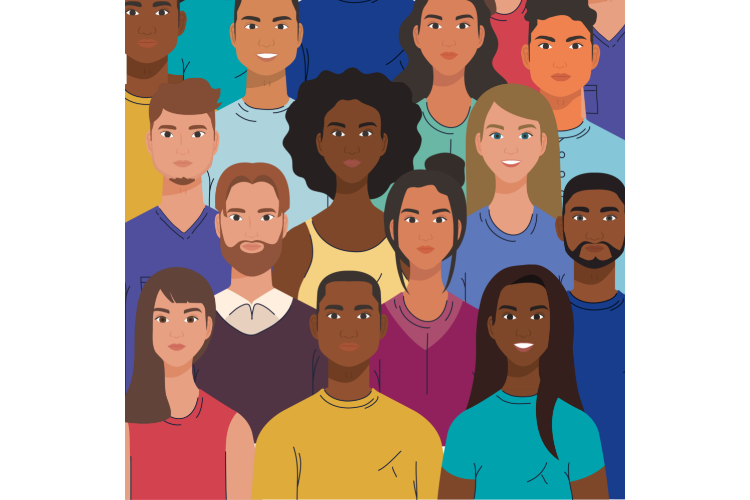
Diversity describes one aspect of inclusiveness: the extent to which an organization has people from diverse backgrounds or communities involved as board members, staff and/or volunteers.
Cultural Diversity
Diversity is the uniqueness of our identities as people, which includes our ethnicity, gender, age, national origin, disabilities, sexual orientation, education, religion and cultural background. According to UNESCO, cultural diversity “is embodied in the uniqueness and plurality of the identities of the groups and societies making up humankind. As a source of exchange, innovation and creativity, cultural diversity is as necessary for humankind as biodiversity is for nature. In this sense, it is the common heritage of humanity and should be recognized and affirmed for the benefit of present and future generations. Read more about UNESCO's definition here.
Inclusiveness
Diversity describes one aspect of inclusiveness: the extent to which an organization has people from diverse backgrounds or communities involved as board members, staff and/or volunteers. Inclusion is a state of being valued, respected and supported. Inclusive organizations are also learning-centred organizations that value the perspectives and contributions of all people, and they incorporate the needs, assets and perspectives of diverse communities into the design and implementation of universal and inclusive programs and services. According to RBC, diversity is the mix; inclusion is getting the mix to work well together. Denver Community Foundation has more information about inclusiveness here.
Cultural Competence
Cultural competence is a set of congruent behaviours, attitudes and policies that come together in a system, agency, or among professionals and enable that system, agency or those professionals to work effectively in cross-cultural situations. It is an ongoing process whereby individuals develop awareness and knowledge about the value that diversity can bring to an organisation and a community. Learn more about cultural competence on the Community Tool Box site.
Other terms used include:
Multiculturlism
Multiculturalism represents the openness to experiencing and celebrating cultural differences within the Canadian context. It is inclusive of all peoples and respectful of the rights of individuals and groups to maintain and practice their cultural heritage, distinctiveness, growth and evolution. Multiculturalism recognizes the richness and strength of ethno-cultural diversity. It builds community by encouraging people to share, learn, appreciate, respect and accept.
Interculturlism
"Interculturalism is concerned with the task of developing cohesive civil societies by turning notions of singular identities into those of multiple ones, and by developing a shared and common value system and public culture. In building from a deep sharing of differences of culture and experience it encourages the formation of interdependencies which structure personal identities that go beyond nations or simplified ethnicities." Nasar Meer & Tariq Modood (2011): How does Interculturalism Contrast with Multiculturalism?, Journal of Intercultural Studies, DOI:10.1080/07256868.2011.618266
Learn more: How does Interculturalism Contrast with Multiculturalism?
Cross-cultural understanding
Cross-cultural understanding relates to the sharing of different cultures or a comparison between them. Cross-cultural relations are where people reach across cultural boundaries, build relationships, share, listen, learn and are open to change.

